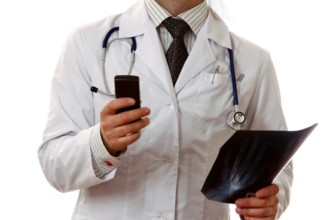An emergency trip to the hospital is never planned, but many doctors tell patients to do their best to avoid the “July effect”: when medical graduates begin their internships and are learning many skills “on the job.”
An emergency trip to the hospital is never planned, but many doctors tell patients to do their best to avoid the “July effect”: when medical graduates begin their internships and are learning many skills “on the job.”
To combat this mid-summer slump, Northwestern University Feinberg School of Medicine developed a specific intern training program. The simulation-based “mastery learning” training camp for newly minted MD’s is designed to improve interns’ clinical abilities and reduce patient-care errors made by new interns. Feinberg’s program is one of the winners of the AAMC’s 2012 Readiness for Reform Innovation Challenge.
The winning submission states that the “July effect” is defined as “increased deaths and decreased efficiency of patient care delivery associated with academic year turnover.” The entry was submitted by Diane B. Wayne, MD., vice-chair of education in the Department of Medicine and Dr. John Sherman Appleman professor of medicine, as well as several of her colleagues at Feinberg.

From left: submission authors William McGaghie, PhD. and Diane B. Wayne, MD with AAMC Chief Health Care Officer Joanne Conroy, MD.
“We studied simulation-based mastery learning for years using a variety of different clinical skills. We looked at skill acquisition and retention, including bedside procedures, having an end of life code status discussion with patients, and ICU clinical skills,” Wayne said. “In each of the clinical skills, we saw that simulation-based mastery learning allowed residents to aquire high-levels of clinical skills and to retain them over time.”
Groundwork for the boot camp program began in 2003. The Northwestern research team noticed that increased training benefitted other residents in the clinical environment and resulted in clinical quality improvement and reduced costs overall. A collaboration with Northwestern Memorial Hospital, the winning program combines methods of practicing these skills together into a training program for new interns. In 2011, 47 new interns participated in boot camp; participation increased to 70 interns in 2012 by including interns from anesthesiology and emergency medicine.
Boot camp features three days of skill training in six clinical skills, including patient care, communication, and bedside procedures. The interns must pass an assessment prior to engaging in patient care. According to Wayne, there is only a 10-20 percent need for remediation, most of which occurs with the code status curriculum due to its complexity as a skill.
“Very high standards are expected of all trainees. Most interns complete the curriculum at about an 80 percent level on time, others might need a few extra hours,” said William McGaghie, PhD. and professor of medical education at Feinberg. “At the end of the day, all learners achieve very high standards with little to no variation, which is the elegance of mastery learning.”
Debates about the increase in mortality rates in hospitals in the month of July are ongoing. A 2010 study from the University of Michigan found that operative mortality rates do not decline as surgical trainees gain more experience during the year, but a 2009 study from the University of California at San Diego found an increase in fatal medication errors in July. These figures are only partly attributed to the changes in experience levels of new residents.
“A big lesson we have learned from working on this initiative is that just by graduating from a medical school and achieving excellent grades and test scores, incoming interns really vary in their skill set,” Wayne said. We cannot just take for granted that medical school graduates know how to do tasks required of interns, they have to be able to demonstrate it.”
According to McGaghie and Wayne, going forward, the clinical team plans to amplify the skill set they expect residents to master, hopefully expanding it to at least 10 skills in coming years, in addition to further expanding the medical specialties participating in boot camp. in. The team has hopes that preparation for GME will be more standardized in the future, giving incoming interns more preparation prior to their internship.
“Boot camp is a platform for further skill development, but not the end,” Wayne said. “So it’s great they can start with a skill, but we need to be really vigilant about skill retention, patient impact, and how interns progress in their independence as junior and senior residents.”
To learn more about “Making July Safer,” and view the other submissions from the 2012 Innovation Challenge, please visit the AAMC iCollaborative.






